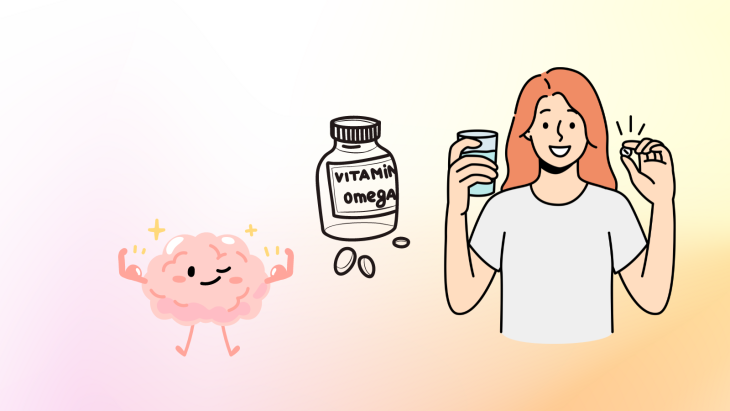Recent Posts
- Men masking mental health issues. Why is men's mental health declining in the US?
- I am hesitating on joining the armed forces! Are people in the armed forces more prone to mental health problems?
- Getting acquainted with the 7 types of anxiety disorders. What do I need to know about them?
- My husband needs to recover from alcohol dependence and mental health issues. How can I help him?
- Are there good and bad debts? And how does debt impact mental health?
Most Popular
How can foods rich in Omega-3 fatty acids support brain health? Understanding the relationship of DHA and EPA to reduced anxiety and depression symptoms.

“Let food be thy medicine and medicine be thy food,” was what Hippocrates, the father of medicine, believed in. What he said 400 BC still is relevant to us today.
Maybe ever since we were young, we have heard that eating well brings health to our physical body, but more recently, we also may have discovered that eating healthy food also brings with it mental wellbeing!
Research after research now presents evidence that there is a strong relationship between eating healthy and our mind’s capacity to heal, to concentrate, and to do other functions. In addition, there is strong evidence to suggest that when our brain does not get the nutrients it needs on a daily basis, we are more prone to the negative effects of stress, anxiety and even contribute to depression.
What factors affect our diet and mental health?
- There is also a correlation between lack of appetite, or on the other side, eating too much especially of more carbohydrates when one is anxious or in a depressed state, according to the American Dietetic Association.
- There is a link between too much consumption of sugar and processed food to inflammation, including in the brain, thus affecting our mood and other mental factors.
- The intake of food rich in nutrients that are in colorful fruits and vegetables, foods with Omega-3 fatty acids, nuts, legumes, and seeds have protective benefits to the central nervous system where our brain and spinal cord belong.
What are Omega-3 fatty acids and how do they benefit the central nervous system?
The central nervous system is the seat of our brain and spinal cord. Our brain is a complex structure that consumes about 20% of our oxygen intake. There are billions of brain cells, called neurons.
As we process our thoughts and emotions, move, breathe, release hormones, work, etc., our brain is in 100% performance, just like a conductor skillfully managing our bodily processes.
In order for the different parts of the brain to function, it needs oxygen, nutrients and particularly lipids (fats). In the brain, there are lipids, predominantly omega-6 and omega-3 series.
Omega 3 fatty acids were first discovered by George Burr and Mildred Burr in 1929 and ever since, their role in reducing heart disease risk, and reducing mental illnesses like depression and anxiety have been established.
Numerous research reviews have also shown that reduced intake of Omega 3s from food among the general population is linked to depression.
Omega-3 fatty acids as part of the structure of our brain cells, have a role in forming new brain cell connections, and in information processing.
Those who have sufficient intake of Omega 3 fatty acids seem to have a positive influence in stabilizing mood, enhancing memory and decreasing symptoms of depression.
On a closer look, Omega-3 fatty acids affect the cell membranes, similar to the function of a gate that lets things in and out of the cells. Omega-3 fatty acids make brain hormones and other brain signals to easily pass through the walls of the cells.
If you want to delve more into the world of Omega-3 fatty acids and increase your intake, look into food sources that have EPA, docosahexaenoic acid, DHA, and alpha-linolenic acid, ALA, the three main forms of Omega-3 fatty acids
By paying attention to what we eat and being intentional in adding foods that are abundant in Omega-3 fatty acids, we not only become healthy physically, but we also reap the benefits of a healthy mind!
Hundreds of medical careers are just one click away. Check the most recent job openings for mental health professionals and healthcare workers and build a fulfilling career in the medical field.








Comments